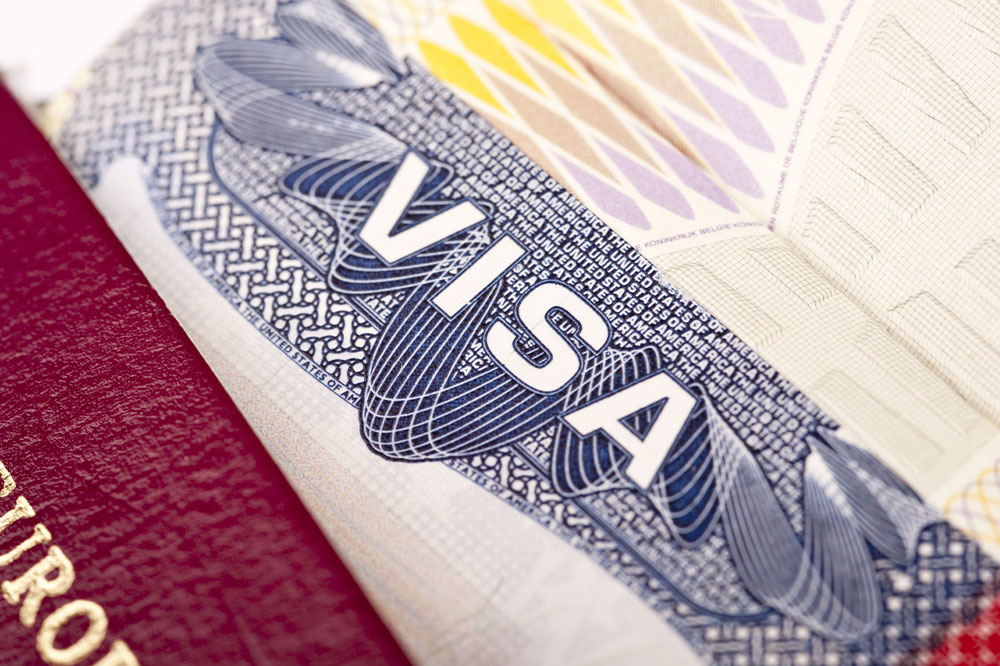Comprehensive Overview of Essential Visa Types for Global Travel and Residency
This comprehensive guide explores various key visa types essential for international travel and migration. Covering immigrant and non-immigrant visas, the article explains eligibility, application procedures, and strategic tips for diverse purposes such as tourism, work, education, and permanent residency. Whether you're planning a temporary visit or a long-term move, understanding these visa categories will help you navigate the complex immigration landscape efficiently. Gain insights into the requirements, processing times, and legal considerations to make your global mobility smooth and successful.

Comprehensive Overview of Essential Visa Types for Global Travel and Residency
In an increasingly interconnected world, many nations attract a diverse array of international visitors and immigrants driven by economic opportunities, world-class educational systems, and vibrant cultural experiences. Whether you're considering a temporary visit or planning a long-term move, understanding the different types of visas available, their requirements, and their purposes is essential for a successful application process. Visas serve as official authorization that allows individuals to enter, stay, and engage in activities within a country for specified durations and reasons. Navigating the complex landscape of visa regulations can be challenging, but a clear understanding can facilitate smoother travel and immigration experiences.
Visas are broadly categorized into two main groups based on their purpose and duration: immigrant visas and non-immigrant visas. Immigrant visas are intended for those seeking permanent residence and work rights, while non-immigrant visas cater to temporary visits for various purposes such as tourism, study, or short-term employment. This detailed guide explores the key visa types in both categories, providing insights into eligibility, application processes, and strategic considerations for prospective travelers and immigrants alike.
Immigrant Visa — Your Gateway to Permanent Residency
The immigrant visa, often referred to as the Green Card in the United States, grants foreigners the permission to live and work permanently in the host country. Sponsored typically by family members or through employment opportunities, this visa type provides a pathway to long-term stability and eventual citizenship in many cases.
Family-Based Immigration: This category enables individuals with close familial ties to citizens or permanent residents to apply for permanent residence. Eligibility generally requires that the relative be over 21 years of age and either a citizen or lawful permanent resident. Common subcategories include immediate family members such as spouses, parents, and siblings, as well as extended family members under the family preference system. Immediate relatives generally face fewer visa restrictions and shorter waits, while family preference categories often have annual caps, leading to longer processing times.
Employment-Based Permanent Residency: Professionals seeking to work in the host country can obtain immigrant visas through employment. These visas are classified under categories like EB-1 (priority workers, including extraordinary ability professionals), EB-2 (advanced degree professionals), EB-3 (skilled workers, professionals, other workers), EB-4 (special immigrants), and EB-5 (investment immigrants). Each category has specific requirements concerning skills, employment offers, and sometimes investment thresholds, designed to attract vital talent and investment.
Diversity Visa (DV Program): The Diversity Visa lottery provides a unique route for individuals from countries with historically low immigration rates to acquire permanent residency. This program is run annually and is free to enter, aiming to promote cultural diversity within the host nation. Applicants are selected randomly, and winners must meet certain educational or work experience criteria before proceeding with the immigrant visa process.
Non-Immigrant Visa — For Temporary Stays
Designed for short-term visits, non-immigrant visas cater to a variety of purposes such as tourism, education, business, and temporary employment. These visas do not confer permanent residence but are essential for legal entry and stay for work, study, or leisure. The application process varies by country and visa type, often involving documentation checks, interviews, and fee payments.
Student Visas: Student visas permit international learners to attend recognized educational institutions abroad. Key categories include F-1 (academic students), J-1 (exchange visitors), and M-1 (vocational students). Students must typically demonstrate acceptance by an accredited institution, sufficient financial resources, and ties to their home country to return after their studies.
Tourist Visa: This visa allows travelers to explore the country for leisure, sightseeing, or casual visits. It generally prohibits employment or academic activities and emphasizes temporary stay. The duration of stay varies, but travelers must often provide proof of financial stability and intention to return home.
Work Visas: Work visas are tailored to different professional categories, allowing foreigners to engage in employment during their stay. Prominent examples include H-1B (specialty occupations), L-1 (intra-company transfers), O-1 (individuals with extraordinary ability), and TN (for Canadian and Mexican professionals under USMCA). Each visa has specific eligibility criteria, application procedures, documentation, and processing times. Applying for a work visa typically entails employer sponsorship, background checks, health screenings, and interviews.
Understanding the necessary documents, fees, health requirements, timeline expectations, and application procedures is vital. Applicants often submit their applications through embassies, consulates, or designated government portals. Seeking professional legal or immigration consultancy can significantly streamline the process, reduce errors, and boost approval chances.





